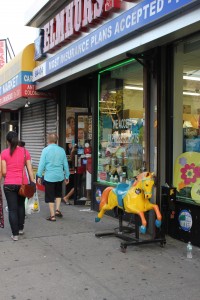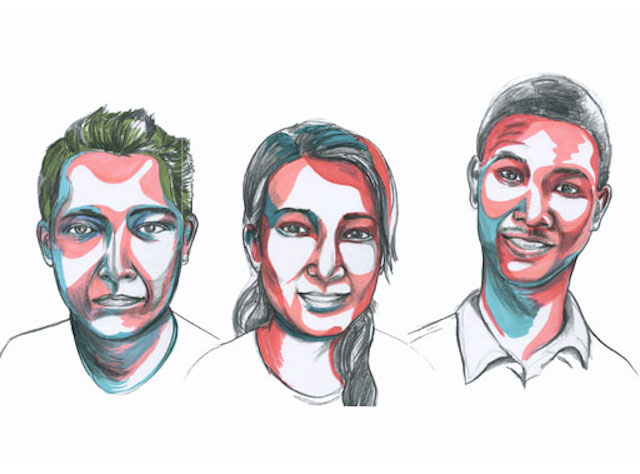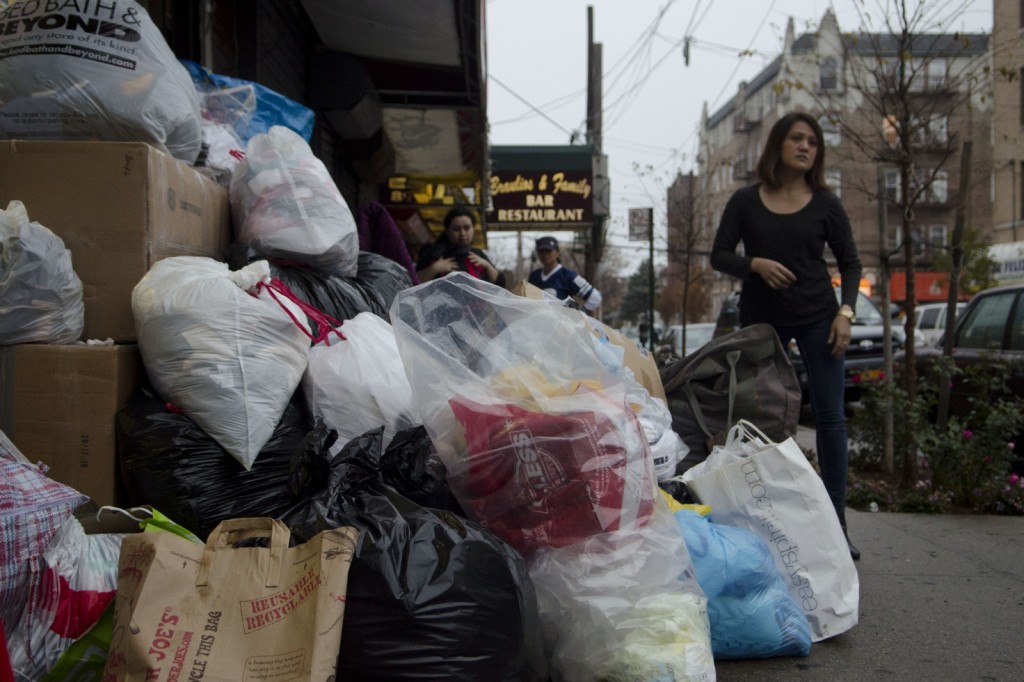The clinking coins were saved for two reasons – to feed the neighborhood parking meters and to pay for kiddie rides outside the supermarket where my family shopped.
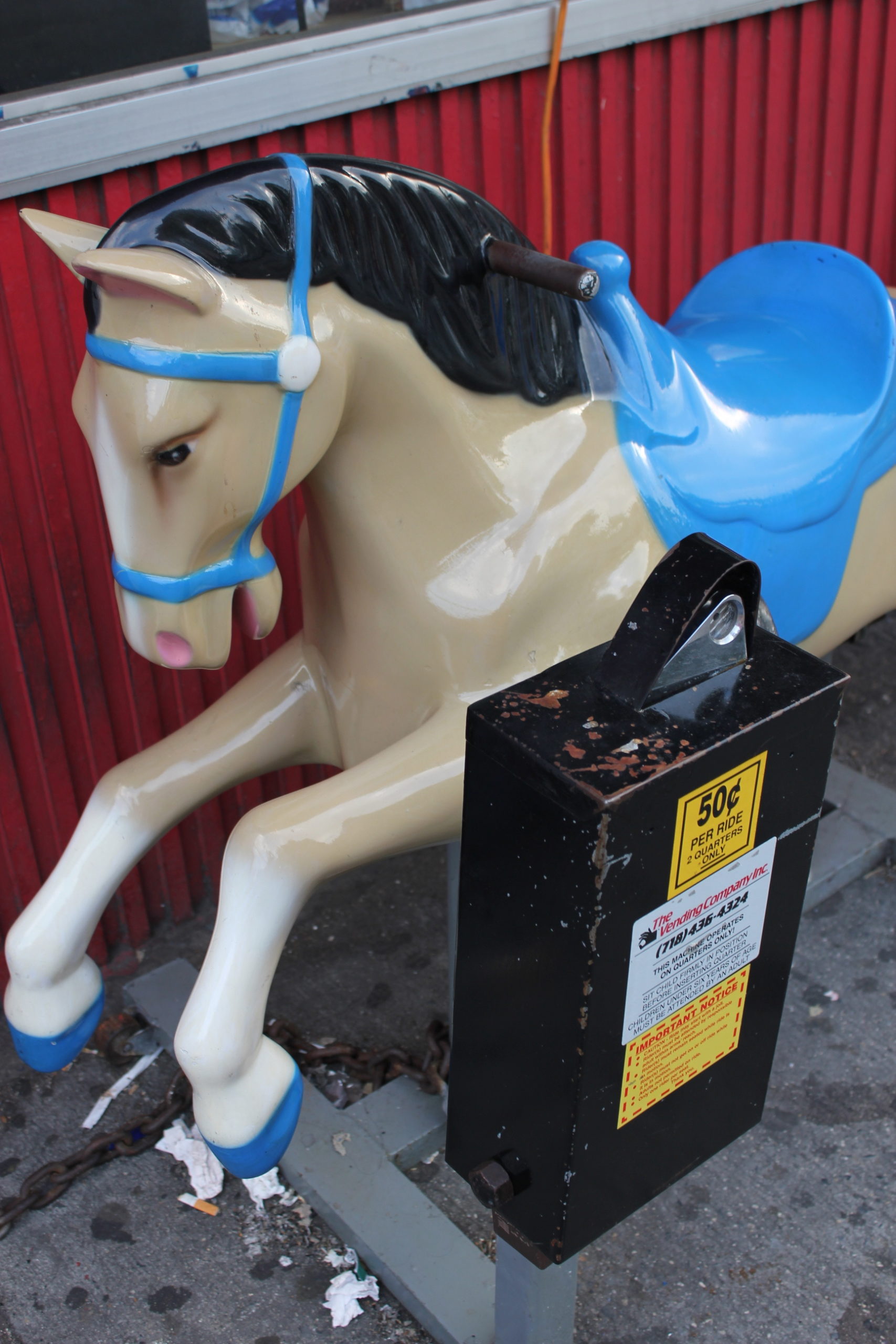
August 13, 2013
When I was growing up, my dad’s pockets were often filled with quarters. His black slacks—standard issue at the restaurant where he worked—jangled cheerfully when he walked. The clinking coins were saved for two reasons—to feed the neighborhood parking meters and to pay for kiddie rides outside the supermarket where my family shopped on the weekends.
Each Sunday, our ritual was the same. My parents tag-teamed the shopping list: fish, meat, and vegetables. As they shopped, I waited for the moment when my dad would finish paying, reach into his pocket, and slip me two coins so that I could take a turn on the brightly colored mechanical horse outside the store.
Since moving back to my old neighborhood, I sometimes wonder about these rides, which still dot both my memory and the main strip along Broadway in Elmhurst, Queens. Even on weekends they don’t seem to get much use.
Outside the Mid-Wood Deli, a horse with a blue saddle waits for a young would-be cowboy or cowgirl. The black metal box next to it reads, “50¢ PER RIDE 2 QUARTERS ONLY.” The owner, Karma, leans against the soda fridge, arms crossed, and explains, “business is difficult and every little helps.”
When he bought the Mid-Wood last year, Karma expected better profits, but the last several months haven’t met his expectations. “It’s the economy,” he says, shaking his head while waving at a passerby through the open window.
When I stare at Karma quizzically, he pulls out his iPhone, taps, scrolls, then hands the phone to me. The screen flashes, “Leo The Chinese Guy, calling mobile…”
On a good month, usually in the summer, the 50-cent horse ride can bring in over $200. Other months, the quarters add up to no more than $30. But $200 means $100 and $30 means $15 since half the profits go to “Leo.” When I stare at Karma quizzically, he pulls out his iPhone, taps, scrolls, then hands the phone to me. The screen flashes, “Leo The Chinese Guy, calling mobile…” Karma explains to me that Leo is the owner of this ride, along with a few dozen similar machines scattered throughout Queens. I find that Leo isn’t as receptive to my questions as Karma, even when I switch from speaking English to Chinese.
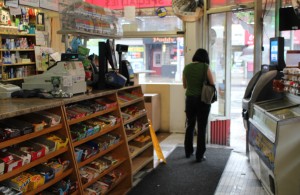
I press Karma for more information. He explains Leo comes by once a month, often unannounced, opens the metal box next to the horse and heads inside the deli to count the money. “50/50,” the storeowner repeats.
“Every little counts, it is better than nothing,” he says echoing his earlier comments about his hopes for the business. And, this explains his latest addition–a 50-cent claw machine game filled with stuffed bears, dogs, and squirrels. The player gets three tries to win one of the colorful animals inside the aptly named “Treasure Chest.”
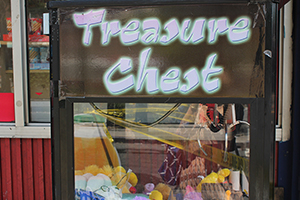
I take a walk down Broadway and find another horse and even a large-mouth pelican outside a pharmacy and a convenience store, respectively. Juan, a worker at the Elmhurst Drug Center, is all smiles when he talks about the horse and the extra income it brings, especially during the summer months. But when I stand outside both the pharmacy and the Mid-Wood for over an hour no one approaches.
When I ask Karma about this, he shrugs and says “Kids today are different. They have their phones and their iPads.” And, before I’m fully out the door he adds, “The kids here, it’s something they can play with when their mom is shopping. Maybe they can’t always go out and play, this neighborhood, we are not rich, but the horse is only 50 cents and then they are happy.”

